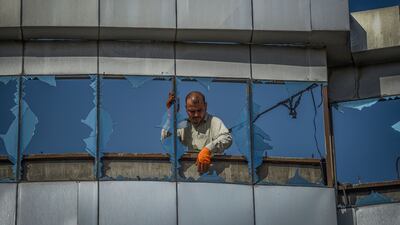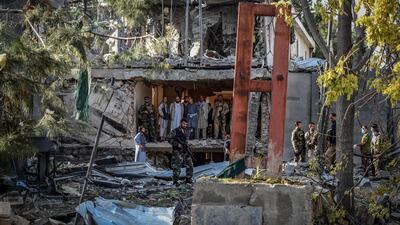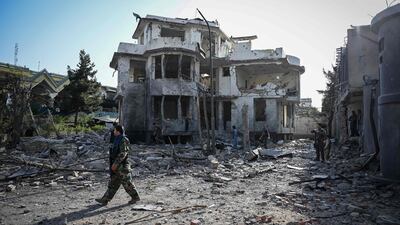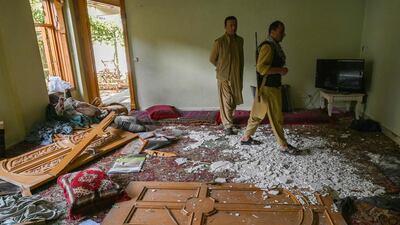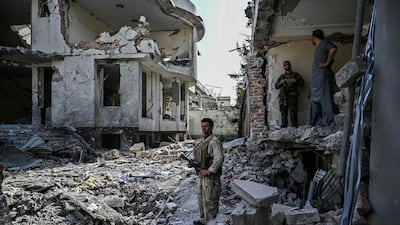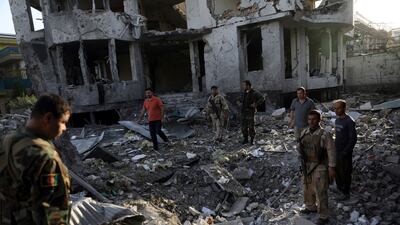US Secretary of State Antony Blinken on Thursday spoke to the top Afghan official overseeing Kabul’s stalled peace talks with the Taliban, reiterating the importance of an “inclusive political settlement” even though the hardliners have the upper hand on the battlefield and have ignored pleas to cut violence.
The Taliban and the team led by Afghan High Council for National Reconciliation Chairman Abdullah Abdullah have been meeting sporadically in the Qatari capital Doha for months but have failed to take any concrete steps towards a peace deal.
While the Taliban's supreme leader Hibatullah Akhundzada claims he “strenuously favours” a political settlement, western diplomats fear this is mere lip service as on the ground the Taliban are carrying out a sweeping offensive across Afghanistan.
Mr Blinken spoke with Mr Abdullah “to reiterate the US commitment to seek a just and durable political settlement that ends the war in Afghanistan,” State Department spokesman Ned Price said.
“Both leaders deplored continuing Taliban attacks, loss of innocent Afghan lives and displacement of the civilian population and underscored the widespread international condemnation of these attacks,” Mr Price said.
The two also discussed “ways to accelerate peace negotiations and achieve a political settlement,” Mr Price said without elaborating.
President Joe Biden in April declared an end to the longest war in US history and almost all American forces have already left Afghanistan, with the few remaining due out by the end of August.
The US insists it will maintain an “over-the-horizon” capability to strike the Taliban from overseas, and on Wednesday, the US struck Taliban targets in southern Helmand.
The strikes came after the Taliban overran much of the provincial capital, Lashkar Gah.
But occasional air strikes are of little reassurance to Afghanistan's security forces, who have relied for years on western strategic and financial support.
The demoralised military far outnumbers the Taliban but has long suffered from corrupt leadership and poor provisioning.
The US and the Taliban made a deal in Doha last year that cemented the American departure from Afghanistan.
But as soon as they signed the accord, the Taliban dramatically stepped up their military campaign across the country.
US Afghanistan envoy Zalmay Khalilizad said on Wednesday that the Taliban seek “the lion’s share of power” in any new Afghan government.



